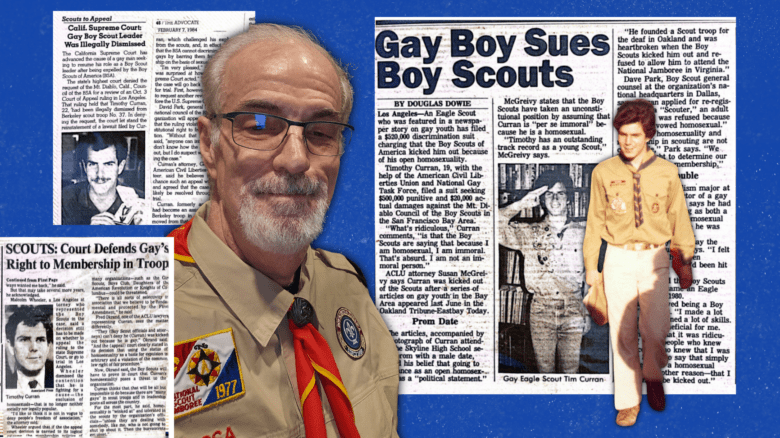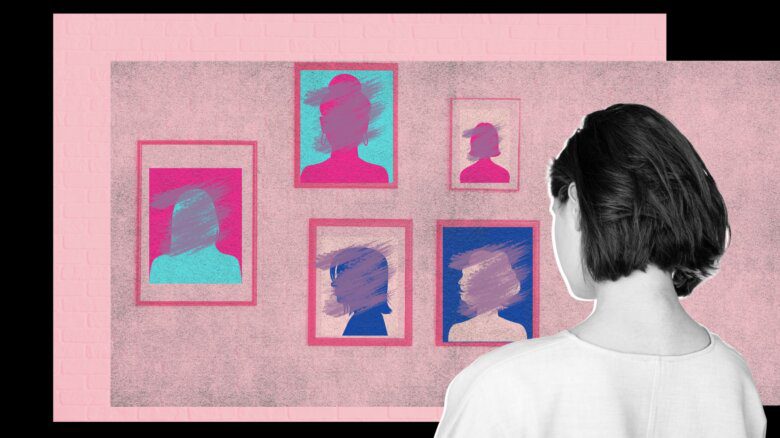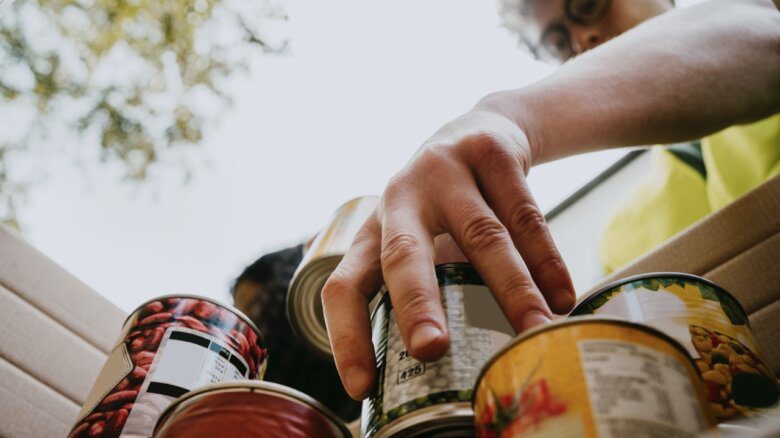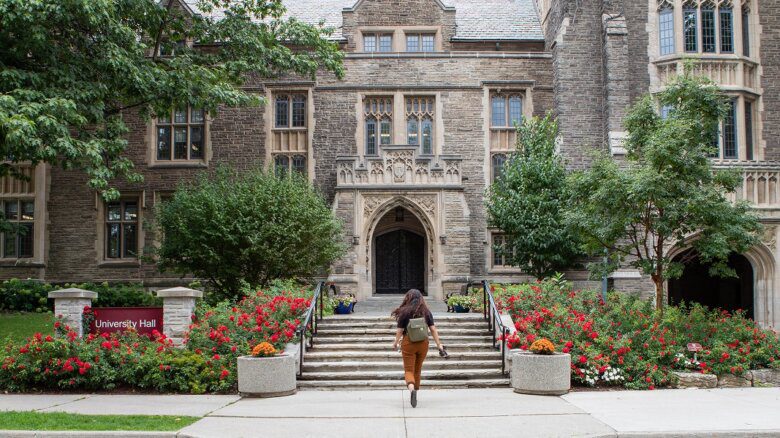In November 2022, Aello, Roma and Zoë, three trans femmes based in Leeds, England, decided to create a Trans Femme Fight Club. They had all become close friends through a wrestling training group called Leeds Queer Wrestling, co-founded by Roma. As part of an associate artist program, she teamed up with close friend Hannah––also an experienced wrestler-cum-drag king, known as Rich Tea–– to create the wrestling group back in 2019, which provides a low-cost, tongue-in-cheek crash course in pro wrestling, as well as offering an interesting, safer space for queer people who want to exercise, but don’t want to go to mainstream gyms. “I wanted to use the choreography of fighting in performances, and examine who is allowed to embody the mechanics of violence,” Roma tells Xtra. “Wrestlers are trained to be virtuosically violent, to make things look bigger and louder than they are. The way wrestling is staged highlights the drama of sport.” Some identifying details, such as surnames, are withheld throughout this story for safety and privacy reasons.
These wrestling classes are physical––there’s amateur wrestling involved, which means grappling your opponent and twisting them into submission holds––but they’re also about charisma, camp jokes and character creation. Their aim is to safely choreograph fights that only look painful.
Roma, Aello and Zoë all had broader experience in combat sports, but as trans femmes, they are barred from professionally competing in “if not all, then almost all combat sports,” says Zoë. There has been minimal progress on this front in recent years. Much was made of the World Boxing Council’s December 2022 announcement that it would create a “transgender category,” which hasn’t yet come to fruition. As for elite sports, there are no known trans women MMA fighters in the U.K. Initially, Trans Femme Fight Club was designed to fill this void. Its purpose was to give trans femmes with previous combat sports experience a designated space in which they could spar, practise their skills and hopefully make friends along the way. Their idea quickly attracted interest, but Zoë says the majority of messages she received came from trans femmes “looking for some form of self-defence training.”
Coincidentally, Zoë had long wanted to create a self-defence class, but she wasn’t sure there would be a demand for it. Now, she is one of several experienced fighters across the U.K. leading self-defence classes aimed exclusively at queer and trans people.
It’s not hard to see why these classes are in demand. Known colloquially as “TERF Island,” the U.K. has seen trans hate crime rates rise consistently over the last six years, particularly during the summer of 2020. This rise is arguably fuelled in part by transphobic media: in January 2023 alone, right-wing tabloid Daily Mail published a staggering 115 articles about so-called “trans issues.” In 2022, former Scottish leader Nicola Sturgeon led a successful campaign to pass the Gender Recognition Reform in Scotland, legislation that would make it easier for trans people to self-identify. The U.K. government––for the first time ever––used its legislative power to block the bill from becoming law. Meanwhile, nationwide vigils were being held to commemorate Brianna Ghey, a 16-year-old trans girl who was stabbed to death in a park.
This context is crucial, but the London-based Bender Defenders try to minimize the focus on violence. They currently hold two classes a week taught by Luca, a professional kickboxer with seven years of experience. He was approached by founder Dan Glass, an activist, author and organizer of London’s Night Pride, a precursor to Bender Defenders, back in 2020. “I thought the [Bender Defenders] idea had a lot of potential, but I thought there were some conversations to be had,” Luca says. “This idea of going to the streets and acting as each others’ guardians ends up in this tricky space that can be quite problematic.”
“In reality, the best skill you can learn is how to avoid a fight…. the best fight you will have is the one you will never have.”
Revenge fantasies have spawned some incredible art––Xtra columnist Kai Cheng Thom’s Fierce Femmes and Notorious Liars, Valerie Solanas’s SCUM Manifesto and John Waters’s Female Trouble are all exemplary––but the reality is less glamorous, less spectacular. “We’ve had people come and ask: what can I get away with?” explains Luca. “In reality, the best skill you can learn is how to avoid a fight. I think that the best fight you will have is the one you will never have.”
Luca reiterates that self-defence often includes no violence whatsoever. It’s easy to imagine movie-style showdowns, but your attacker might have friends waiting in the wings, or a weapon in their pocket. “We talk about de-escalation a lot, and we do a lot of skill-shares,” he explains. “There’s a lot of information out there about bystander intervention training,” he continues. This is certainly true––feminist direction action group Sisters Uncut also held police intervention training, to ensure cops aren’t causing further harm. However, Luca says he “couldn’t find many useful resources for the person actually experiencing a hate crime, and how to de-escalate that,” Luca continues. The resources might not formally exist, but plenty of queer people are well versed in de-escalation already. We often have experience in talking our way out of potentially violent situations, ignoring verbal abuse on the streets and staying alert. “There’s a lot of expertise within our community,” Luca confirms. “When we break down what de-escalation is, a lot of people already know how to do it.”
Caroline, who uses her legal degree to run self-defence workshops for Bender Defenders, as well as taking on fundraising, admin and generally helping keep the scheme alive, attended her first class in January 2022. Not only was she tired of experiencing harassment, she was also intrigued by martial arts, but deterred by the heteronormative culture surrounding them. “I sort of wanted to learn self-defence skills, but it was more than that,” she says. “I was feeling frustrated, angry and sad about the levels of harassment I was facing. You’re left with a lot of difficult emotions after going through these things, and there’s nowhere for them to go. So, I was very attracted to punching things as a way to process anger.” The classes themselves are more about “community-building, play and fun” than “the hostile climate that exists in the outside world,” Caroline says. “I like the way Luca puts it, which is really beautiful. We don’t want our community to be centred around someone else’s hate.”
It’s likely that these kinds of self-defence classes have existed in community-led, informal capacities for decades, but their prevalence seems to have risen over the last few years. In 2016, bones tan jones and MMA instructor Venus came together to form Shadow Sistxrs, a London-based series of self-defence classes aimed specifically at queer people of colour. In 2019, Huck Magazine commissioned journalist James Greig to attend a self-defence class run by Ishigaki, an LGBTQ+ jiu-jitsu group, in conjunction with London Gay Pride. Bender Defenders came in early 2020, sparked by rising hate crime rates; more recently, the likes of Trans Femme Fight Club have emerged, whereas regional, trans-led sport groups, like Brighton’s Trans Can Sport, have branched out into self-defence classes, too.
Even before these classes existed, queer and trans people have long been in search of these skills. Topher Taylor, a U.K-based sex educator, was born and raised in Eltham, London, where he was regularly assaulted. “I’ve been beaten, mugged, sexually assaulted and verbally harassed, to the point that, as a teenager, I wouldn’t leave my house unless I could be driven to the train station,” he says. After one particularly brutal attack, in which his attacker beat him against a fence and stole his phone, Taylor’s father, an ex-boxer, taught him a few self-defence skills. Taylor was a teen in the early 2000s, when queer communities and resources were harder to find than they are now. “[My father] taught me how to block, punch and the best way to tuck if I got beaten to the ground,” Taylor says. “I’m grateful that he did, and it’s fair to say I’ve put those skills to use over the years, but I would have absolutely loved to have access to queer self-defence classes when I was younger.”
There’s more to these groups than just physical combat. They do create space for queer people who want to learn self-defence techniques and practise combat sports, but Zoë says one of their key appeals is mental, in the sense that they comfort attendees with the thought that they could physically defend themselves if they needed to. It’s easy to feel powerless, but these classes can change that. “In most situations, if someone is being rude, mean or transphobic, the worst thing they could do is attack me,” explains Zoë. “I don’t want to fight. You should never want to start a fight. But there is a sense of confidence in knowing you can defend yourself if you need to.” Roma tells me she’s been attacked three times in the last two months, and that her martial arts background has helped her stay calm under pressure when needed.
There are mechanisms––police forces, hate crime laws––to protect us, but nobody interviewed for this article believes they actually keep us safe. Roma says she has “zero faith in the state or its apparatus.” Zoë says she wants “all trans people to be able to protect themselves, because nobody else will do it for us.” Caroline concurs; although she started as an attendee of Bender Defenders last year, she’s since become more deeply involved. Putting her legal degree to good use, she runs workshops on self-defence law. “A lot of systems that are supposed to protect queer and trans people aren’t designed to support us,” she says. “We don’t decide what self-defence is, the law does. You need to be very careful about what you do. You might think you were using violence in self-defence, but that might not be what the police or the courts decide. It’s important to acknowledge that. We’re not exempt from these systems that don’t support our communities.”
As is pretty much always the case–– the rise of trans crowdfunding campaigns and mutual aid funds is exemplary––we support each other when the state won’t, but queer people aren’t exempt from harming each other. Luca says he’s been harassed in LGBTQ+ venues. Caroline says she has, too––and that she finds it “to be much more upsetting and difficult to react to than when it happens ‘out in the world.’’’ Especially over the last few years, we’ve seen the rise of organizations like the LGB Alliance, which are outright transphobic, claiming to be “LGB advocates” to mask their blatant discrimination.
It’s never been more important for marginalized groups to come together in solidarity, and queer and trans self-defence classes are playing a key role in forging new networks and communities. Trans Femme Fight Club already has a book club for people who aren’t interested in combat. Bender Defenders held a queer baby-oil-wrestling event to raise funds, and Caroline is constantly writing new funding applications to secure cash to keep the classes going. Luca started out teaching classes unpaid, which later became unsustainable as he started to burn out. “I felt a bit weird getting paid for something I loved doing, but you should still get paid for things you love doing,” he says, laughing. “I’m so grateful to Caroline for helping, because applying for grants involves writing essays, and I’m really bad at that!” Both Luca and Caroline underscore that relying on institutional funding alone is unsustainable; they reiterate the importance of supporting the group, which could mean volunteering time, teaching skills or donating cash, either directly or by buying their merch.
In the face of governments, police and laws that weren’t built to protect us, queer and trans people learn to protect ourselves and each other. “There’s a lineage of oppressed groups needing to defend each other,” Roma says. “We don’t reach liberation by arguing to preserve the oppressive systems we already have.” Zoë reiterates the importance of solidarity, arguing that “no self-defence class worth its salt should be just about you protecting yourself as an individual; it should be about recognizing what you can do as a community, as a group, to protect the people around you.” Driven by this ethos, Trans Femme Fight Club is blossoming quickly. “It really has exploded,” Zoë says. “It’s becoming a community, a group of people I can rely on. Ultimately, I know that there’s a network of trans women out there that can kick ass, and I know that they’ve got my back.”
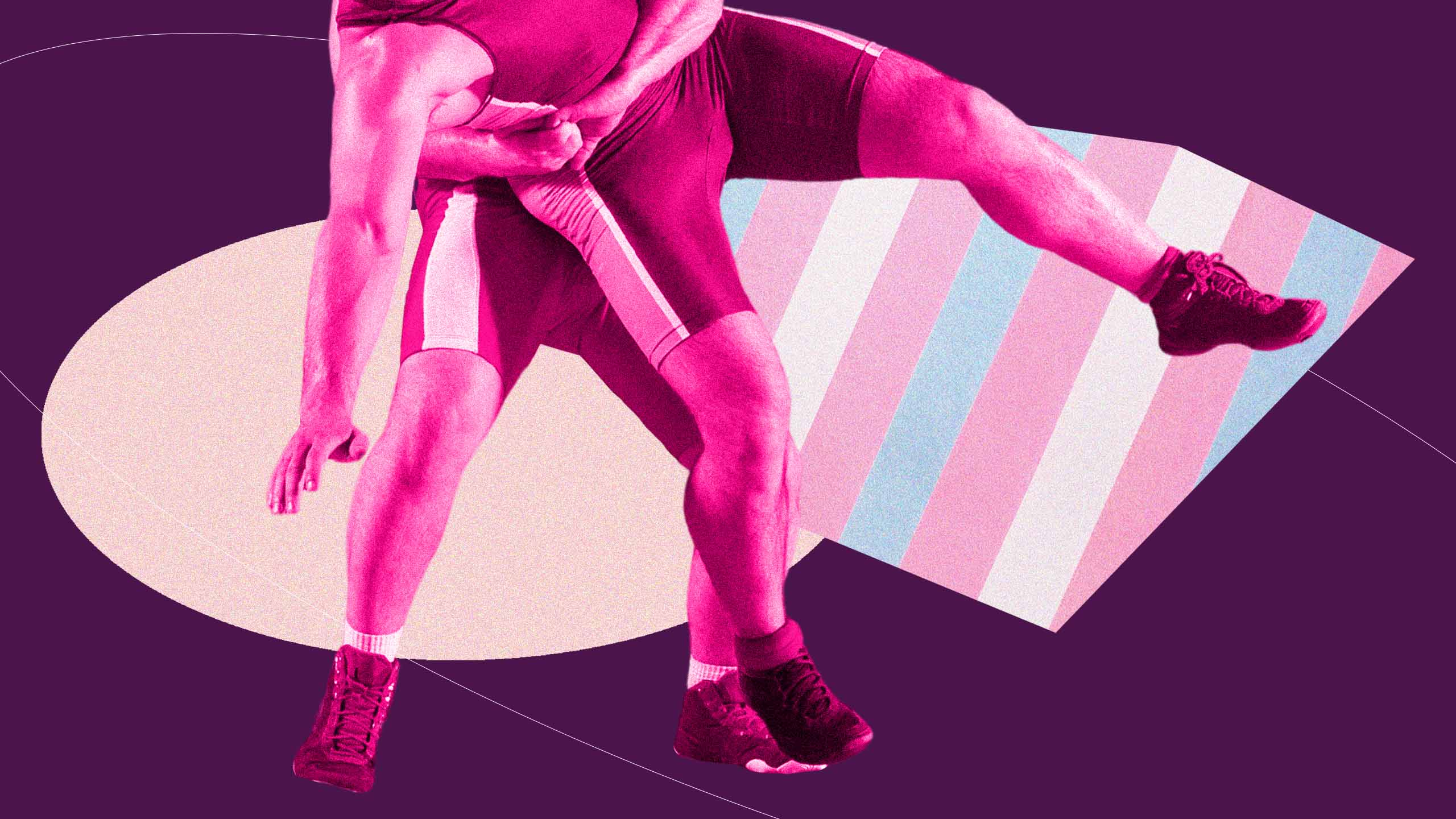

 Why you can trust Xtra
Why you can trust Xtra